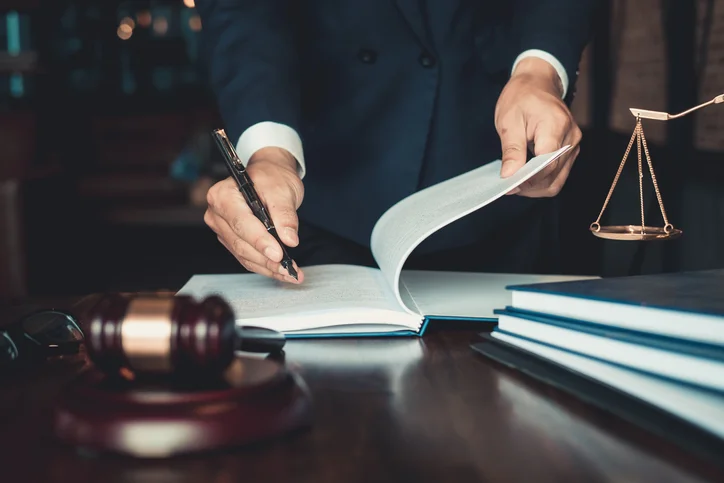
The Intertwined Journey of Wills and Probate
When it comes to ensuring the orderly distribution of your assets and preserving your legacy, two critical components come into play: wills and probate. While these terms are often used interchangeably, they represent distinct yet intertwined aspects of the estate planning process. Navigating this intricate landscape requires a deep understanding of the differences between wills and probate, and the invaluable role that probate lawyer play in guiding you through this journey.

What is a Will?
A will is a legal document that outlines your wishes for the distribution of your assets after your passing. It serves as a blueprint for how you want your property, possessions, and even guardianship of minor children to be handled. Without a will, the state’s intestacy laws will determine how your assets are distributed, often in a manner that may not align with your desires.
What are the essential components of a valid will?
For a will to be considered valid, it must typically meet the following requirements: be in writing, signed by the testator (the person making the will), dated, and witnessed by at least two disinterested parties. Additionally, the testator must have the mental capacity to understand the implications of the will.
The Importance of a Well-Crafted Will
A well-drafted will is crucial for ensuring that your final wishes are carried out as intended. It not only provides clarity and direction for the distribution of your assets but can also help minimize potential conflicts and disputes among beneficiaries.
- Designating Beneficiaries: Through a will, you can specify who you want to receive your assets, whether it’s family members, friends, or even charitable organizations.
- Appointing an Executor: A will allows you to name an executor, who will be responsible for overseeing the administration of your estate and ensuring that your wishes are carried out according to the terms of the will.
Can a will be changed or revoked after it’s been created?
Yes, a will can be amended or revoked as long as the testator has the mental capacity to do so. This allows for flexibility in adjusting your wishes as your circumstances or relationships evolve over time.

Understanding Probate
Probate is the legal process through which a deceased person’s assets are properly identified, valued, and distributed according to their will or state laws if no will exists. It’s a court-supervised procedure that ensures the orderly transfer of assets to the rightful beneficiaries while also addressing any outstanding debts or liabilities owed by the deceased.
- Authenticating the Will: During probate, the court will authenticate the validity of the will and ensure that it meets all legal requirements.
- Settling Debts and Taxes: Before assets can be distributed, any outstanding debts or taxes owed by the deceased must be settled from the estate.
- Distribution of Assets: Once debts and taxes have been addressed, the remaining assets are distributed to the beneficiaries named in the will or according to state intestacy laws if no will exists.
Is probate always required?
Not always. In some cases, smaller estates or assets that are held jointly or have designated beneficiaries may be able to bypass the probate process. However, probate is typically required for larger estates or those with complex asset structures.
The Role of Probate Lawyers
While it is possible to navigate the probate process without legal representation, the complexity of the process and the potential for costly mistakes make hiring a probate lawyer a wise decision. These legal professionals play a crucial role in ensuring that your estate is properly administered and your final wishes are honored.
- Interpreting the Will: Probate lawyers have the expertise to interpret the language and provisions of your will, ensuring that your intentions are accurately understood and carried out.
- Guiding the Probate Process: Probate lawyers are well-versed in the intricacies of the probate process and can guide you through each step, from filing the necessary paperwork to representing your interests in court, if necessary.

Can a probate lawyer assist with estate tax planning?
Yes, probate lawyers can provide valuable guidance on estate tax planning strategies, helping to minimize tax liabilities and preserve more of your assets for your beneficiaries.
Avoiding Costly Mistakes
One of the primary benefits of working with probate lawyers is their ability to help you avoid costly mistakes that could jeopardize your estate and create unnecessary complications for your loved ones.
- Improperly Executed Wills: If a will is not properly executed or fails to meet legal requirements, it may be deemed invalid, leading to the distribution of assets according to state intestacy laws rather than your wishes.
- Missed Deadlines and Filing Errors: The probate process is governed by strict deadlines and filing requirements. Missing a deadline or submitting incorrect paperwork can result in delays, fines, and even the loss of certain assets or rights.
Can an executor be held personally liable for mishandling the estate?
Yes, an executor or personal representative can be held personally liable for mismanaging or misappropriating assets from the estate. This highlights the importance of seeking professional guidance from probate lawyers to ensure compliance with legal obligations.

Beyond Wills: Trusts and Estate Planning
While wills are a common component of estate planning, probate lawyers can also assist with more complex strategies, such as the creation and administration of trusts. Trusts can help minimize the need for probate, provide asset protection, and offer greater control over how your legacy is distributed.
- Revocable Living Trusts: A revocable living trust allows you to transfer ownership of your assets to the trust during your lifetime, while still maintaining control over them. Upon your passing, the trust assets can be distributed to your beneficiaries without the need for probate, streamlining the process and potentially reducing costs.
- Irrevocable Trusts: Irrevocable trusts offer greater asset protection and can be used for a variety of purposes, such as minimizing estate taxes, providing for a disabled beneficiary, or charitable giving. Probate lawyers can guide you in establishing and structuring these trusts to align with your goals.
Can a trust completely avoid the need for probate?
While trusts can help minimize the need for probate, it is unlikely that probate can be completely avoided in most cases. However, proper trust planning can significantly reduce the assets subject to probate, streamlining the process.

The Cost of Professional Representation
While hiring probate lawyers does come with a cost, the potential benefits often outweigh the expense. Probate lawyers can help streamline the process, minimize disputes, and ensure that your legacy is protected, ultimately saving time and money in the long run.
How do probate lawyers typically charge for their services?
Probate lawyers typically charge an hourly rate or a flat fee based on the complexity of the estate. Some may also charge a percentage of the estate’s value. It’s important to discuss fee structures upfront and understand the potential costs involved.

Conclusion: Protecting Your Legacy with Expertise
Traversing the intertwined realms of wills and the Texas probate process is a labyrinthine and often emotionally charged endeavor. By gaining a profound understanding of the distinctions between these two pivotal components and seeking the counsel of adept probate lawyers, you can ensure that your final wishes are executed with unwavering precision, and your legacy is preserved for generations to come. Probate lawyers transcend their roles as mere legal advisors; they are the sentinels of your heritage, guiding your estate through the intricacies of the texas probate process with steadfast dedication and unparalleled expertise. Embrace their guidance, and embark upon this journey emboldened by the assurance that your life’s endeavors will be safeguarded, and your loved ones will be provided for long after you’ve departed. Remember, your legacy is a culmination of your life’s efforts, values, and aspirations. Entrusting it to the capable hands of probate lawyers ensures that your wishes are honored, your assets are protected, and your loved ones are spared the unnecessary burdens and complications that can arise from navigating this intricate texas probate process alone.









